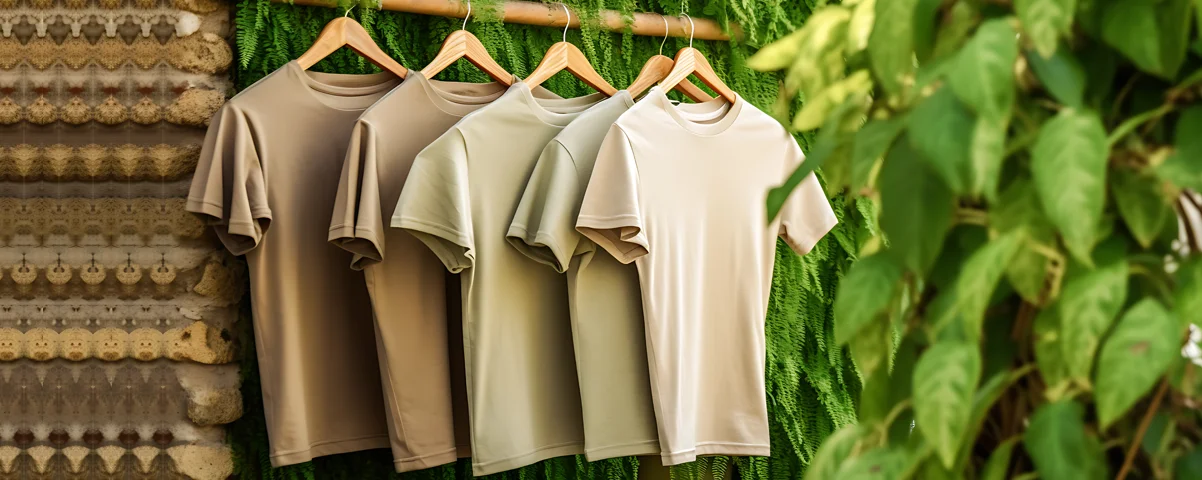Supporting Neighborhood Cape Town Sustainable Fashion for a Greener Future
Keep Ahead of the Curve by Discovering Ingenious Fashion Fads
In a market as dynamic as style, staying ahead involves more than just adhering to current fads-- it requires an expedition of development. The merging of technology and fashion declares a new era of customer interaction.

Welcoming Smart Textiles
In current years, the apparel industry has actually observed a transformative change with the combination of clever fabrics, an innovative innovation that mixes technology with textile. This advancement stands for not only a blend of looks and performance yet likewise a considerable jump towards sustainability and personalization in vogue. Smart fabrics, likewise called e-textiles, embed sophisticated electronic devices such as sensors and conductive threads within the material, making it possible for garments to connect with the user or the environment.
These textiles are made to monitor physiological specifications, such as heart price or body temperature level, providing real-time health and wellness analytics. Past health and wellness applications, smart fabrics are additionally being utilized for adaptive clothing, which can change color or pattern in action to ecological stimulations, hence offering a dynamic style experience.
Additionally, the development of energy-harvesting textiles that produce power from movement or sunlight is leading the way for self-sufficient wearable technology. This technology is appealing to ecologically conscious customers and developers aiming to reduce the ecological footprint of style. As r & d in this area advancement, wise textiles are expected to come to be progressively common, reshaping the landscape of modern-day fashion with their multifunctional capacities.
The Rise of 3D Printing
Transforming the manufacturing landscape, 3D printing has become a game-changer in the apparel industry. This innovative innovation has allowed developers to push the limits of imagination, producing detailed and personalized garments that were formerly inconceivable. By leveraging digital layout and additive production, 3D printing promotes the creation of intricate geometries and patterns, enabling designers to try out new appearances and frameworks.
A noteworthy benefit of 3D printing in vogue is its ability to create on-demand, decreasing waste and decreasing inventory demands. This efficiency not just enhances production procedures yet likewise permits fast prototyping, making it possible for developers to bring their visions to life in a much shorter timeframe. In addition, 3D printing supports modification somewhat unrivaled by traditional methods, providing unique designs and tailored fits tailored to specific consumer preferences.
The surge of 3D printing has likewise equalized style, making it easily accessible to emerging designers who can currently produce top quality pieces without significant financial investment in traditional production facilities. As innovation remains to advance, the fashion business is poised to harness the complete capacity of 3D printing, exploring brand-new products and techniques that will certainly redefine just how style is conceived and created.
Lasting Fashion Technologies
As the garment industry grapples with the pushing demand for ecological obligation, sustainable style technologies have actually arised at the center of transformative change. The expanding recognition of ecological impact has fueled a shift towards more eco-conscious practices and products. Developers and brands are currently prioritizing sustainability, incorporating methods that decrease waste and lower carbon impacts.
One considerable growth is the increase of circular Recommended Reading style, which emphasizes recycling and upcycling to expand the lifecycle of garments. This approach not just decreases waste however additionally urges customers to adopt a more conscious approach to garments intake. In addition, using lasting products, such as natural cotton, hemp, and recycled polyester, has actually gained traction. These products call for less water and power throughout manufacturing, dramatically minimizing ecological effect.
An additional advancement hinges on the fostering of cutting-edge dyeing techniques that use waterless processes or all-natural dyes, therefore lowering the huge amounts of water and chemicals typically used in fabric dyeing. Moreover, innovations in biotechnology have led to the creation of lab-grown natural leather and materials, using cruelty-free and eco-friendly options to standard products. With these pioneering initiatives, the fashion sector is making significant strides in the direction of a more lasting future.

Tech-Integrated Clothing
Tech-integrated apparel represents a cutting-edge combination of style and innovation, reshaping exactly how people connect with their apparel. This cutting-edge domain name is marked by the inclusion of wise textiles and ingrained electronic elements, boosting both functionality and aesthetic charm. From fitness trackers installed in sports apparel to warmed jackets regulated via smartphone apps, tech-integrated apparel published here provides consumers unprecedented benefit and flexibility.
Introducing brands are driving this trend, focusing on creating garments that react to ecological stimulations or user commands. For example, some garments can alter shade or pattern in response to temperature level shifts, while others incorporate biometric sensing units to check health and wellness metrics like heart rate or stress and anxiety degrees. The smooth assimilation of technology into fabrics likewise reaches environmental sustainability, with initiatives to develop self-cleaning fabrics or garments that get used to weather, therefore decreasing the need for several layers.
Moreover, the development of wearable innovation is not simply limited to clothing yet encompasses accessories like watches and eyewear, additional widening the scope of tech-integrated style. As the industry remains to innovate, the possibility for personalization and customization in clothing grows, offering consumers special, tech-enhanced style experiences that accommodate their individual demands and preferences.
Future of Virtual Style
Recently, the future of virtual style has become a transformative force within the industry, leveraging advancements in electronic modern technology to redefine how style is created, experienced, and taken in. By incorporating increased reality (AR), digital reality (VIRTUAL REALITY), and 3D style tools, designers can now craft interactive and immersive experiences that go beyond traditional fashion borders. Digital fashion enables the production of garments that exist only in digital environments, offering countless possibilities for advancement without the constraints of physical pop over to these guys production.
This digital change not only presents chances for imaginative expression but likewise addresses sustainability concerns intrinsic in traditional fashion techniques. Cape Town Sustainable Fashion. By removing the demand for physical sources, digital fashion minimizes waste and minimizes carbon impacts. Moreover, the surge of digital fashion aligns with the raising consumer need for unique and customized experiences, as digital garments can be personalized and customized to individual choices easily

Conclusion
The style market's future lies in the integration of lasting techniques and cutting-edge technologies. Virtual style is positioned to redefine consumer communications.
In current years, the fashion sector has seen a transformative shift with the integration of wise fabrics, a cutting-edge advancement that blends modern technology with fabric.As the fashion industry grapples with the pushing demand for ecological duty, sustainable style advancements have actually arised at the center of transformative adjustment.In current years, the future of online style has actually arised as a transformative pressure within the industry, leveraging innovations in digital innovation to redefine exactly how fashion is produced, experienced, and eaten. The surge of virtual fashion straightens with the enhancing customer need for personalized and distinct experiences, as digital garments can be tailored and tailored to private preferences with convenience.
The style market's future lies in the integration of innovative modern technologies and lasting methods.